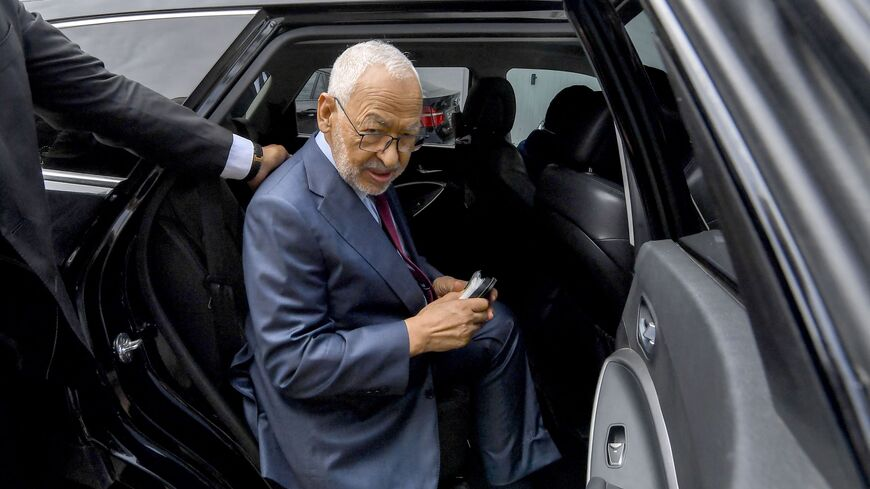
Tunisian authorities arrested a number of officials linked to Ennahda, the main opposing party to President Kais Saied, in connection with the deportation of Tunisians to fight in Syria.
On the morning of Sept. 21, Tunisian authorities released the deputy head of Ennahda movement, Ali Laarayedh, after he was detained on Sept. 20 for questioning in the case of deporting Tunisian jihadists to combat zones a decade ago.
Laarayedh served as minister of interior and prime minister in the first post-revolution government from 2011 to 2013. He and Ennahda leader Rached Ghannouchi were summoned by Tunisian police on Sept. 18 for questioning about the thousands of Tunisians who were sent to combat zones during that time, including Syria, where they joined jihadist groups opposing President Bashar al-Assad.
Later on the evening of Sept. 21, Ghannouchi was released and his summons to appear before investigators was postponed until Nov. 28.
Days earlier, Tunisian authorities investigated more than 120 people in the same case, and arrested prominent politicians and former officials, including the former leader of Ennahda movement, Habib el-Louz, former security official Fathi al-Baladi, who is close to Ennahda, and former MP and businessman Mohamed Frikha.
Frikha owns Syphax Airlines, which several political parties accuse of sending Tunisians to battle zones.
The crackdown follows reports that former MP Fatima al-Masadi has issued since 2021 about the recruitment of Tunisian jihadists.
Mukhtar al-Jamai, a lawyer for Ghannouchi and the others involved in the case, told Al-Monitor, “There is no evidence … in this case, which they say involve a former prime minister, a minister, a former interior minister, a parliament speaker, members of the National Constituent Assembly, and security personnel.”
On Feb. 6, President Kais Saied dissolved the Supreme Judicial Council, the country’s top independent judicial watchdog, accusing it of taking billions in bribes. The move was part of a series of steps Saied has taken since July 2021 after suspending parliament, in what his opponents described as a coup. The Ennahda movement held the majority of parliamentary seats at the time.
Jamai went on to say, “Political scores among opponents are being settled in the media instead of the judiciary. Laarayedh has been arrested and Ghannouchi will be investigated amid no evidence.”
On Sept. 20, the Public Prosecution released Louz, who was accused by political parties opposed to Ennahda of inciting young men to join foreign jihadist organizations. In 2013, he told the local Al-Sabah newspaper, “If I were young, I would go to fight in Syria.”
In 2015, Tunisian authorities estimated the number of Tunisians in combat zones such as Syria, Iraq and Libya at about 3,000 — although unofficial figures say the number is much higher.
Masadi, the former head of a former parliamentary commission that investigated the case, told Al-Monitor that in December 2021, he filed a lawsuit over the deportations based on the commission’s findings, “whose work Ennahda tried to disrupt to prevent the truth from being exposed.”
Masadi, who is loyal to the current Tunisian authorities, added that the deportations are linked to other cases involving Ennahda, such as the political assassinations between 2013 and 2014.
Some Tunisians fear that pressure will be exerted on the judiciary in this case, especially since Saied dismissed 57 judges in June.
Ahmed Najib Chebbi, the head of the National Salvation Front, a coalition of parties opposed to Saied, told Al-Monitor, “Saied is placing pressure on the judiciary to settle political scores, and as far as I know, the matter will not be limited to parties, as it will also involve strong unions such as the Tunisian General Labor Union (UGTT).”
The National Salvation Front is not against opening the deportation case, he said, but only “under fair trial conditions, and this is unfortunately not available now.”
